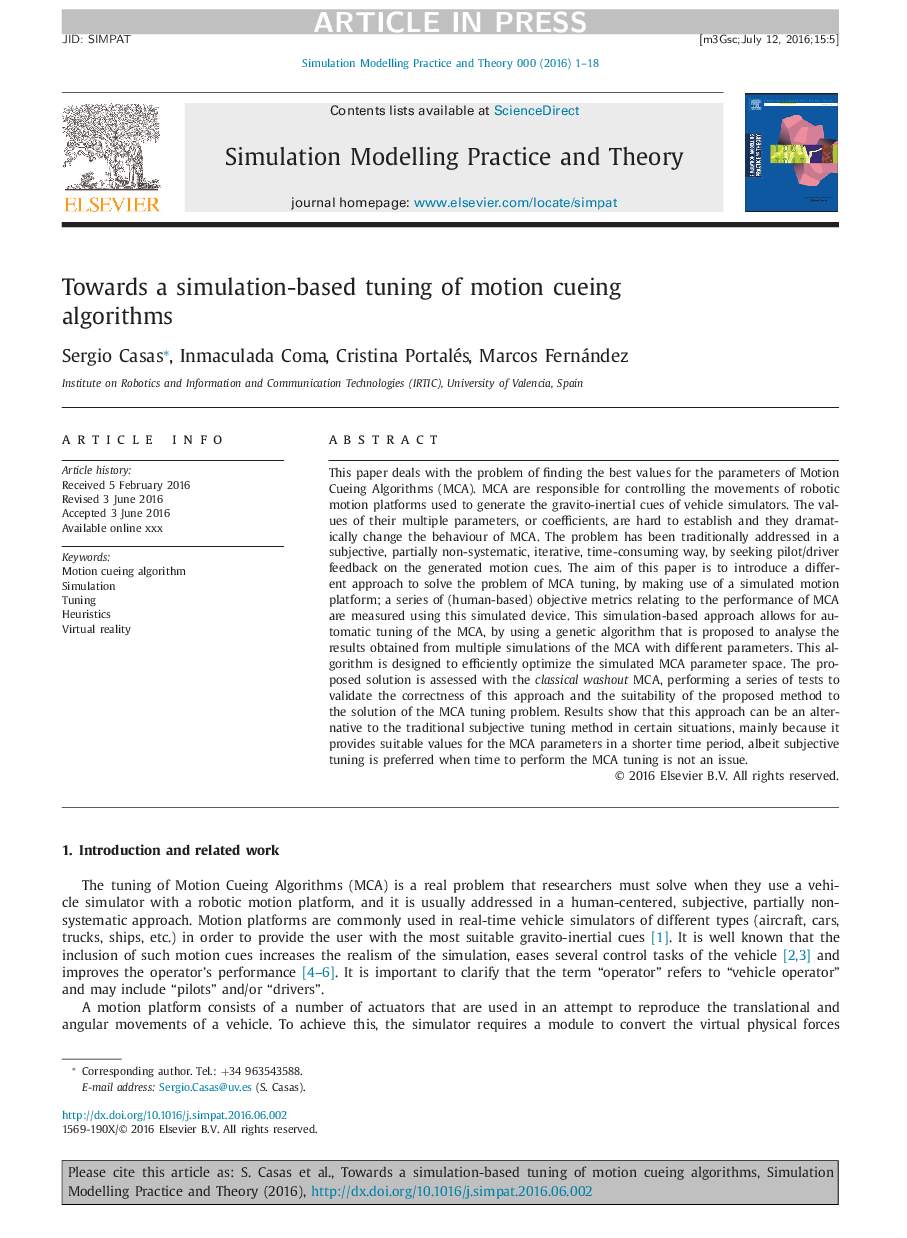| Article ID | Journal | Published Year | Pages | File Type |
|---|---|---|---|---|
| 6902819 | Simulation Modelling Practice and Theory | 2016 | 18 Pages |
Abstract
This paper deals with the problem of finding the best values for the parameters of Motion Cueing Algorithms (MCA). MCA are responsible for controlling the movements of robotic motion platforms used to generate the gravito-inertial cues of vehicle simulators. The values of their multiple parameters, or coefficients, are hard to establish and they dramatically change the behaviour of MCA. The problem has been traditionally addressed in a subjective, partially non-systematic, iterative, time-consuming way, by seeking pilot/driver feedback on the generated motion cues. The aim of this paper is to introduce a different approach to solve the problem of MCA tuning, by making use of a simulated motion platform; a series of (human-based) objective metrics relating to the performance of MCA are measured using this simulated device. This simulation-based approach allows for automatic tuning of the MCA, by using a genetic algorithm that is proposed to analyse the results obtained from multiple simulations of the MCA with different parameters. This algorithm is designed to efficiently optimize the simulated MCA parameter space. The proposed solution is assessed with the classical washout MCA, performing a series of tests to validate the correctness of this approach and the suitability of the proposed method to the solution of the MCA tuning problem. Results show that this approach can be an alternative to the traditional subjective tuning method in certain situations, mainly because it provides suitable values for the MCA parameters in a shorter time period, albeit subjective tuning is preferred when time to perform the MCA tuning is not an issue.
Related Topics
Physical Sciences and Engineering
Computer Science
Computer Science (General)
Authors
Sergio Casas, Inmaculada Coma, Cristina Portalés, Marcos Fernández,
